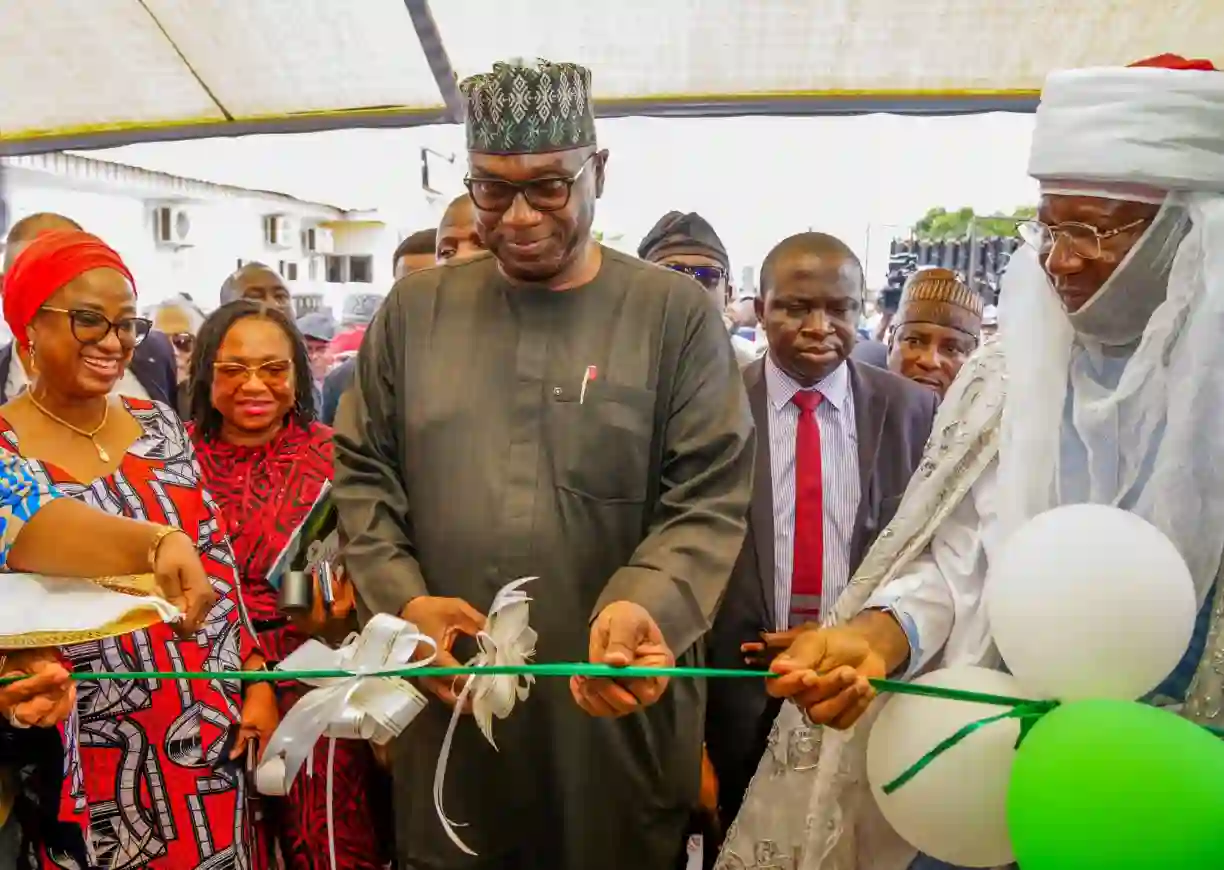Kwara State has officially turned the page on manual processing of land matters following the launch of a digital land information system by Governor AbdulRahman AbdulRazaq. The initiative, known as the Kwara State Geographic Land Information Service (KW-GIS), promises to deliver land titles such as Certificates of Occupancy (CofO) within two weeks to 30 working days once all conditions are met.
Speaking at the launch in Ilorin, Governor AbdulRazaq described the digital system as a major leap in the state’s commitment to innovation, transparency, and efficiency in public service delivery. “Today marks another bold step in our commitment to innovation, transparency, and efficiency in public service delivery,” he said. “For decades, the process of land administration in many states, including Kwara, has been characterised by manual records, inefficiencies, and delays that discourage investors, slow down property transactions, and create room for abuse.”
According to him, the KW-GIS Digital Land Information System represents a complete transformation in how land records are managed in the state. “It provides a modern, automated, transparent platform that ensures every parcel of land in the state is digitally captured, documented, and easily retrievable,” he said. The Governor explained that the new system would eliminate duplication and loss of land records, reduce processing time for CofO and other land documents, enhance revenue generation, and boost investor confidence through the security and certainty of land ownership.
Governor AbdulRazaq described the launch as a milestone in the state’s ease of doing business reforms and urged all stakeholders to embrace the innovation. The event attracted government officials, lawmakers, traditional rulers, industry leaders, and market representatives.
Commissioner for Finance and Chairman of the Kwara State Ease of Doing Business Council (EODBC), Dr Hauwa Nuru, said the digital land system strengthens Kwara’s position as a national leader in World Bank–supported programmes such as NG-CARES, SABER, and the HOPE Program (HOPE EDU, HOPE PHC, and HOPE GOV). “This outstanding progress is a testament to Your Excellency’s unwavering commitment to institutional reforms, accountability, and sustainable development,” she stated. Dr Nuru praised the Council, the KW-GIS team, and technical partners for their dedication and efforts in achieving this milestone.
Executive Chairman of the Kwara State Internal Revenue Service (KW-IRS), Mrs Folashade Omoniyi, highlighted how the digital system bridges gaps in land administration, documentation, and record accuracy. “The new system leverages modern technology to establish a transparent and efficient land management process,” she explained. She added that integrating the KW-IRS online payment platform with KW-GIS further supports seamless transactions. “Investors, titleholders, and the general public can now register land, process CofO, obtain building approvals, and make all related payments online, seamlessly and transparently reducing bureaucracy and strengthening public trust,” Omoniyi said.
She further disclosed that the government has reviewed and harmonised laws governing land administration to align with global best practices, ensuring clarity, fairness, and efficiency in property rights and documentation.
Executive Secretary of KW-GIS, Alhaji Sulyman Abdulkareem, described the launch as a historic moment in land administration. He mentioned that under the Kwara Smart City project, land digitisation would ensure that records are archived for future generations, preventing encroachment. Abdulkareem also commended Governor AbdulRazaq for approving N560 million as compensation for land acquired for the Smart City project.
Project Consultant, Dr Paul Adepelumi, stated that the digitalisation of KW-GIS sets a new national benchmark in land management. He explained that the platform simplifies online applications for land, accelerates the processing of CofO, and removes bottlenecks. “KWGIS is not just a platform but a revolution. It takes us from files to digital records, from delay to speed, and from opacity to transparency,” he said.
Project Manager for the initiative, Engr Ali Muhammad Kalot, outlined the platform’s features and benefits, including digital parcel mapping, land record integration, revenue generation, and user access control. He noted that over 200 KW-GIS staff members have been trained to handle all operational processes. “We have scanned more than 1000 layouts. We have also digitised all the plots in our KW-GIS platform, numbering about 20,000 plots. And this is a key achievement of our project,” Kalot said.

